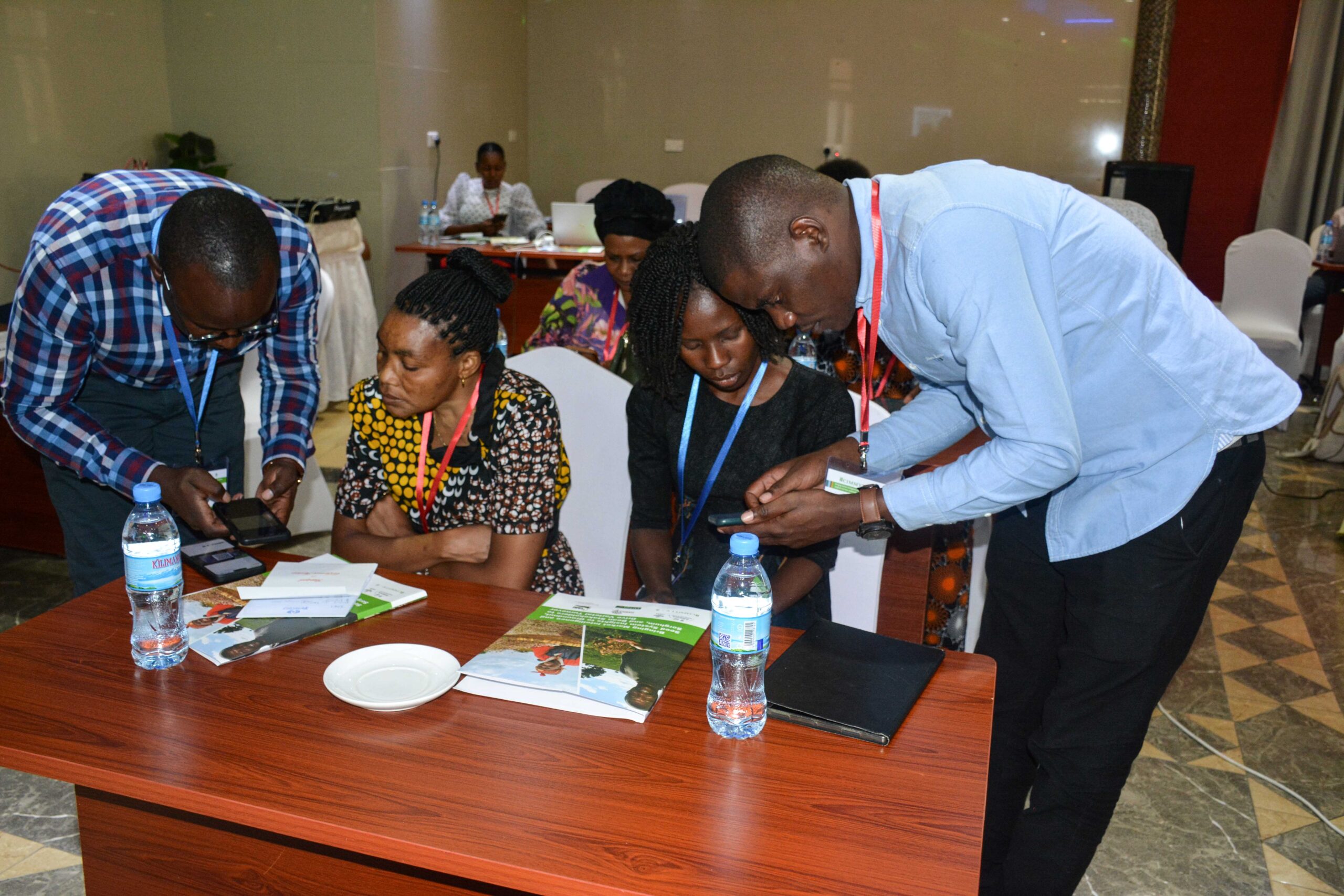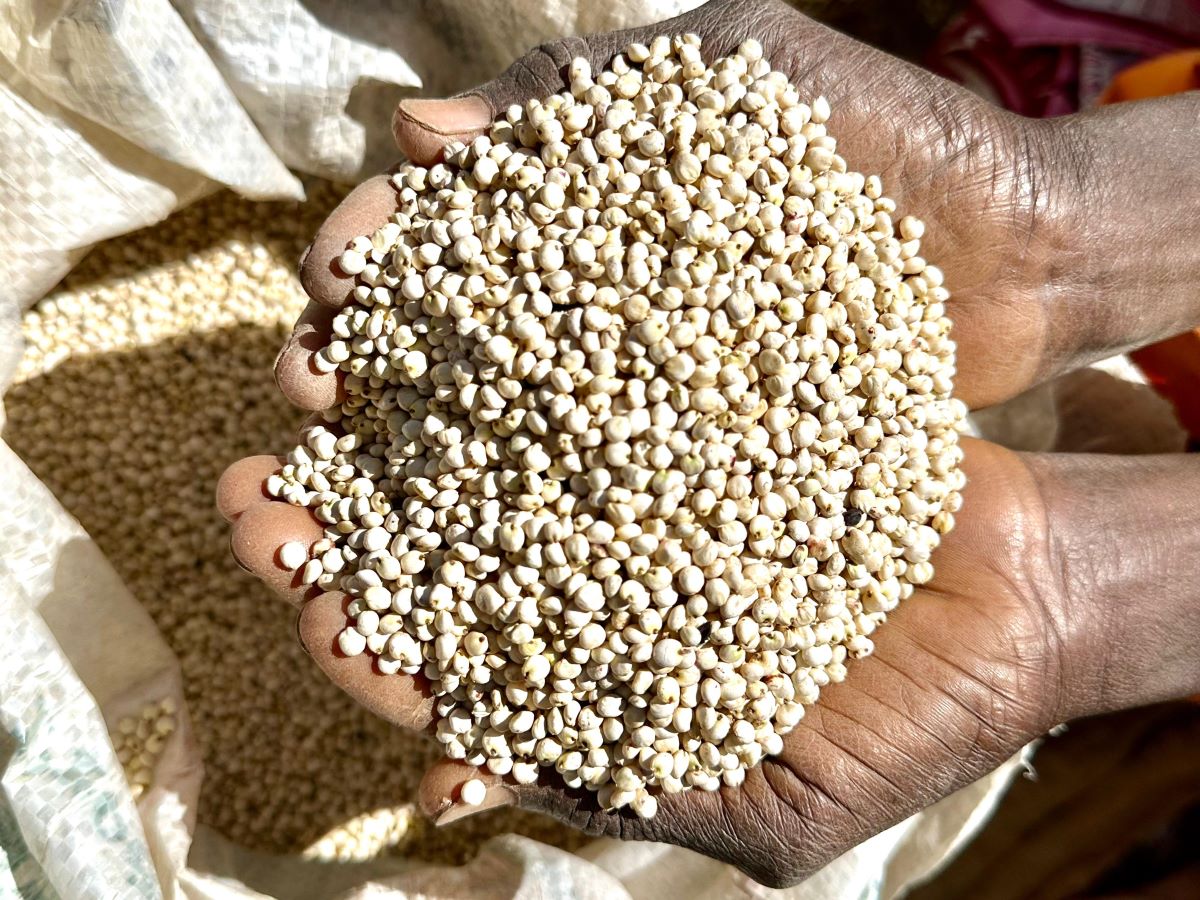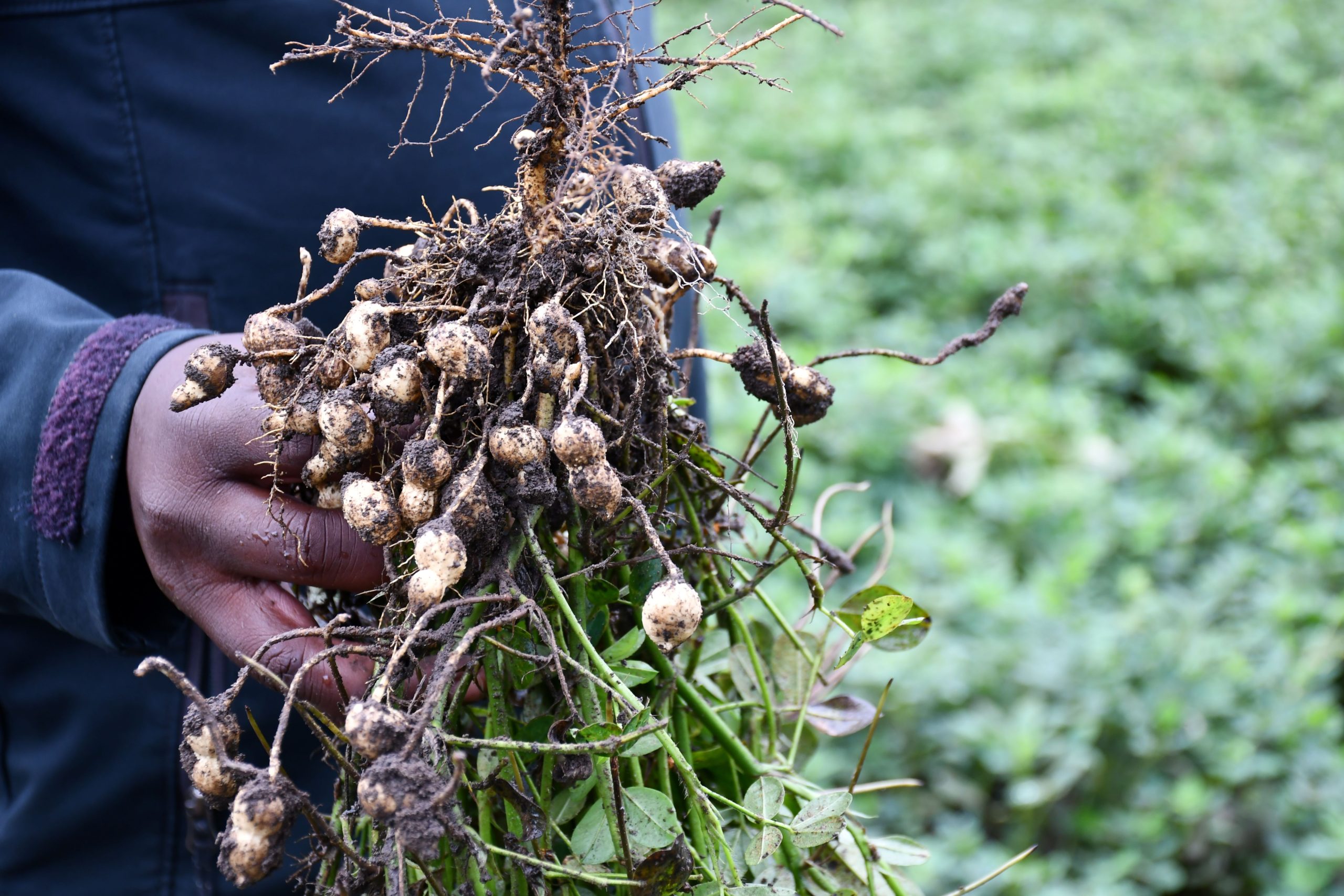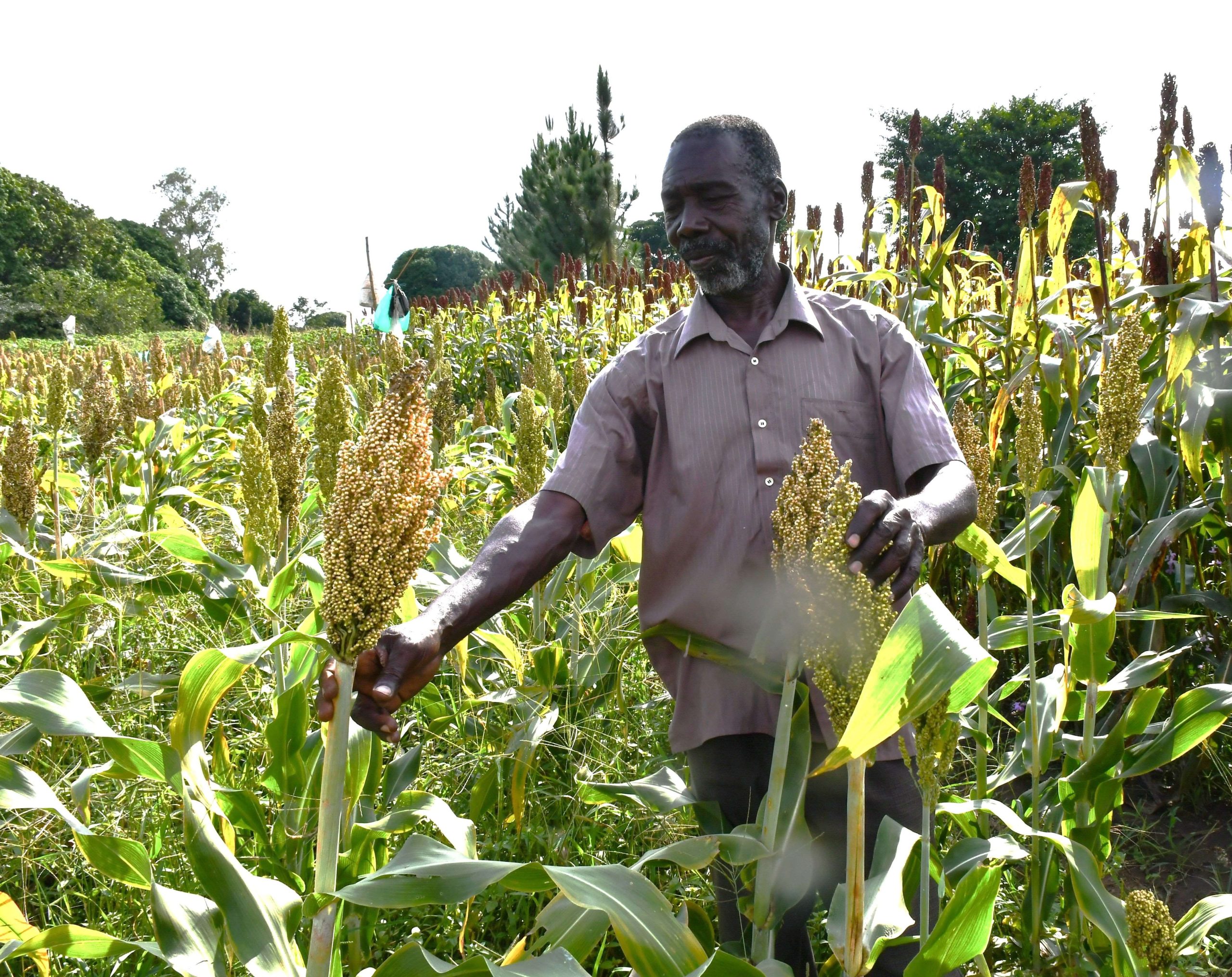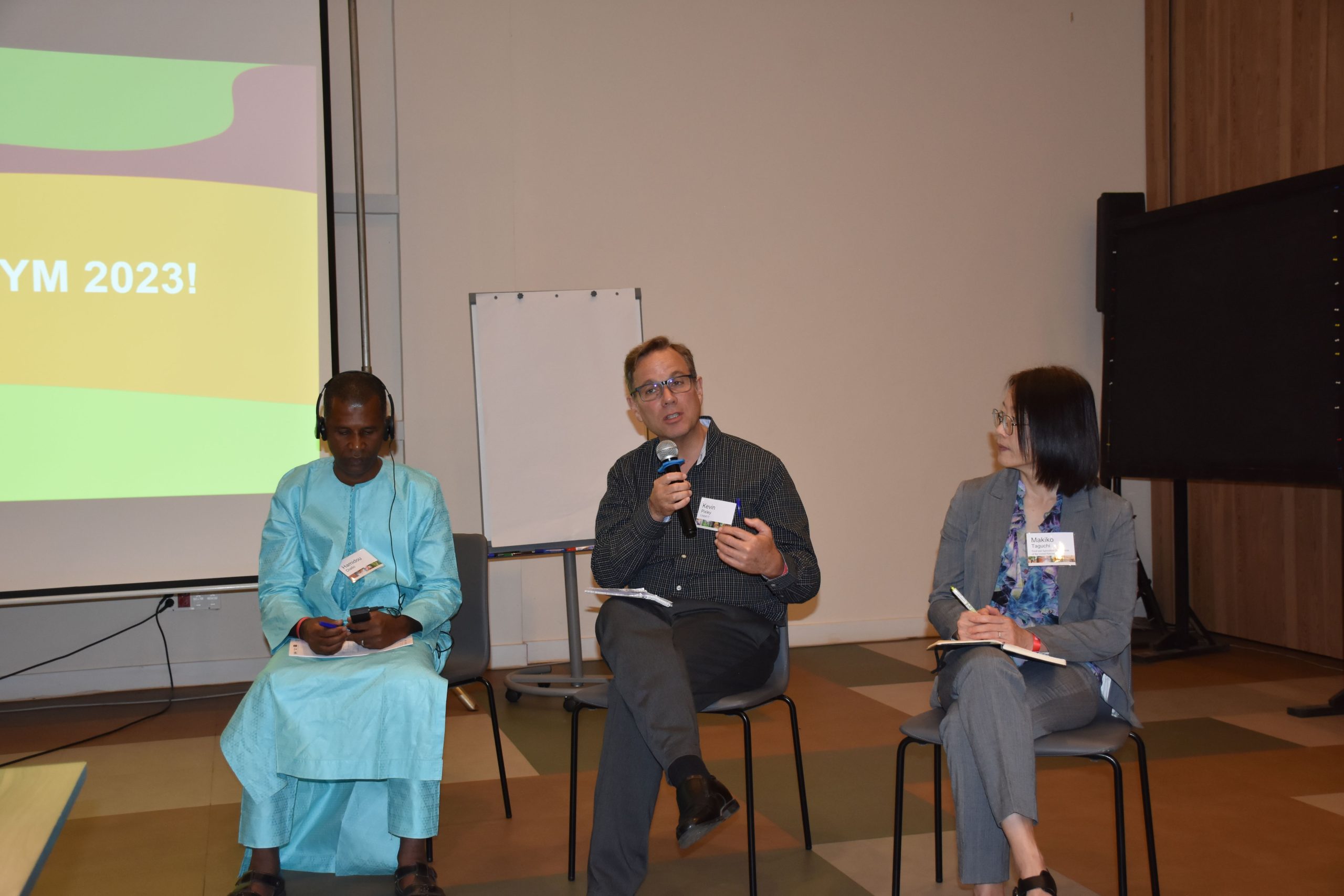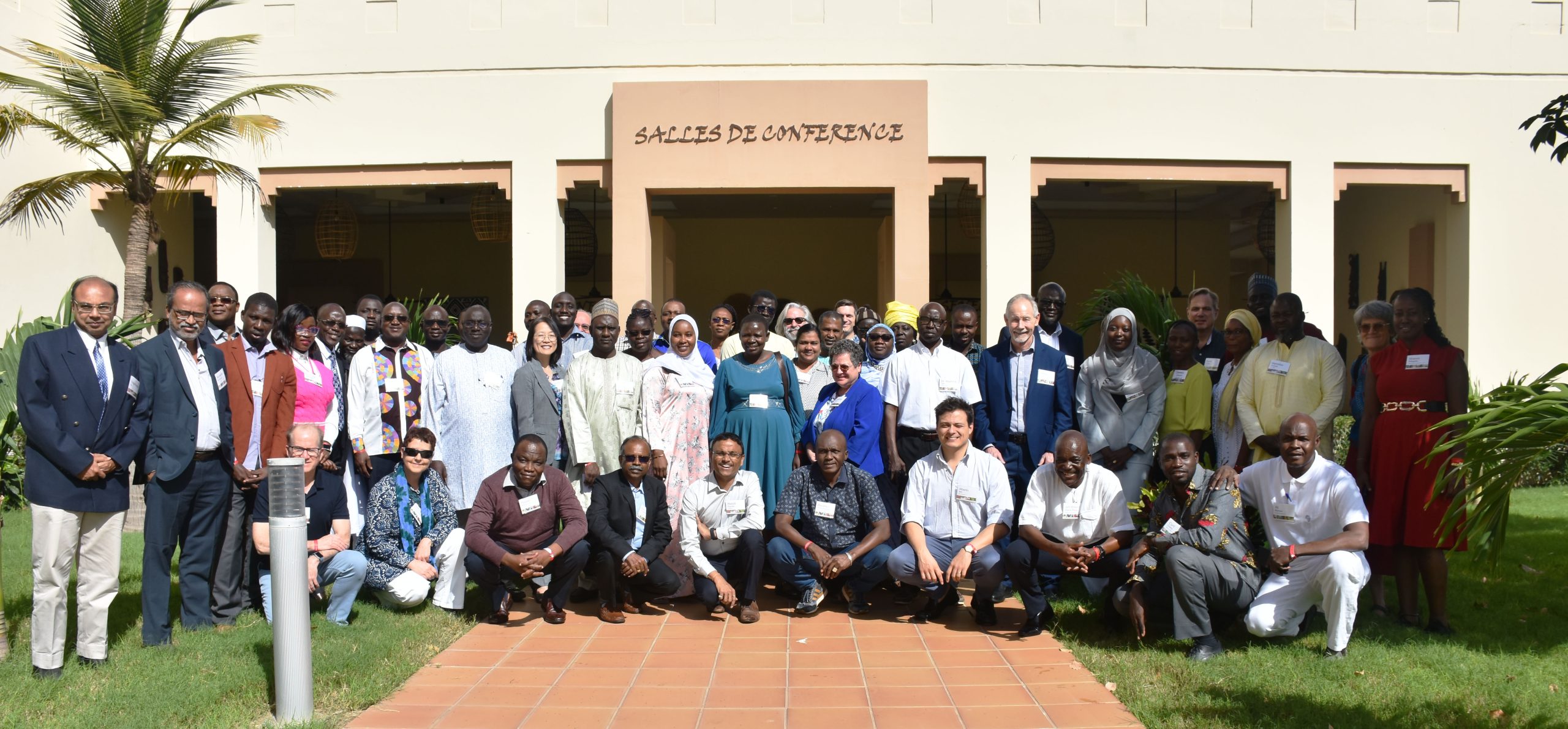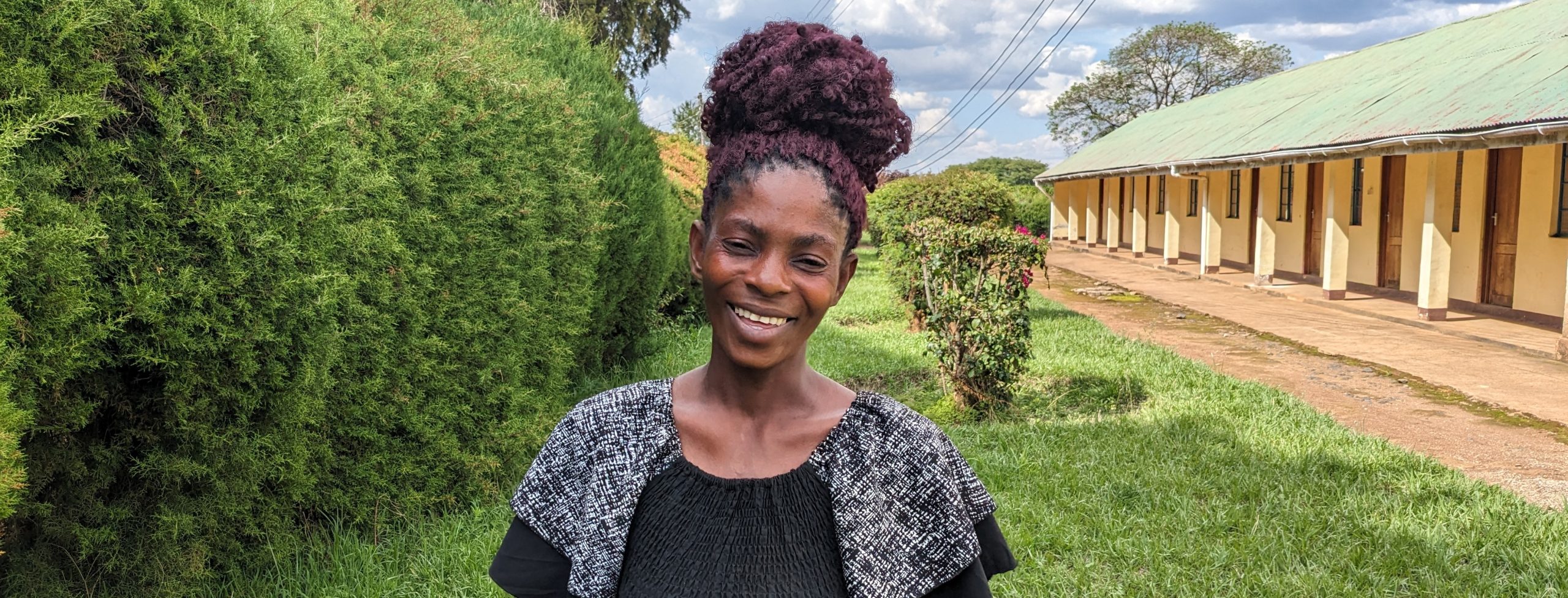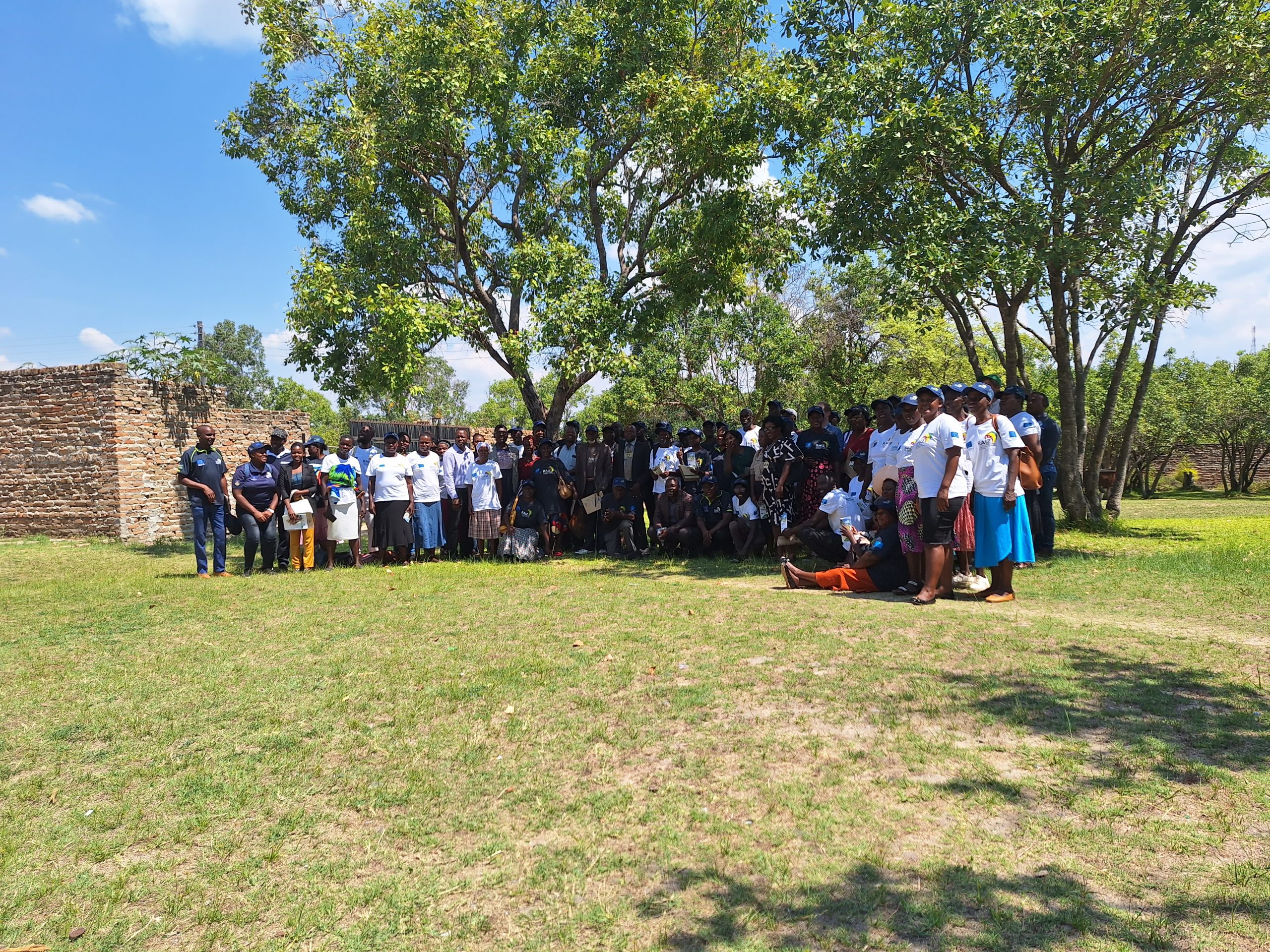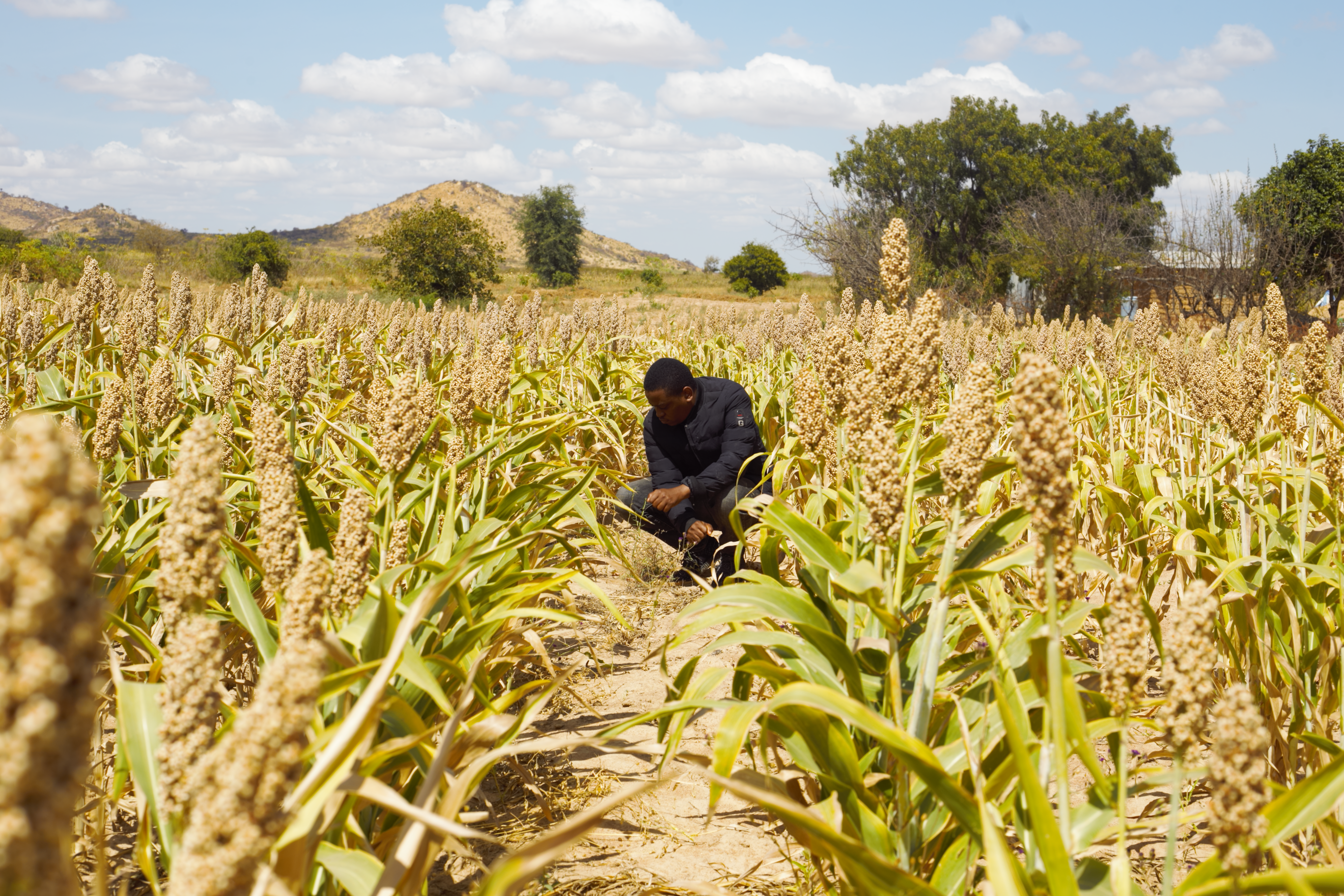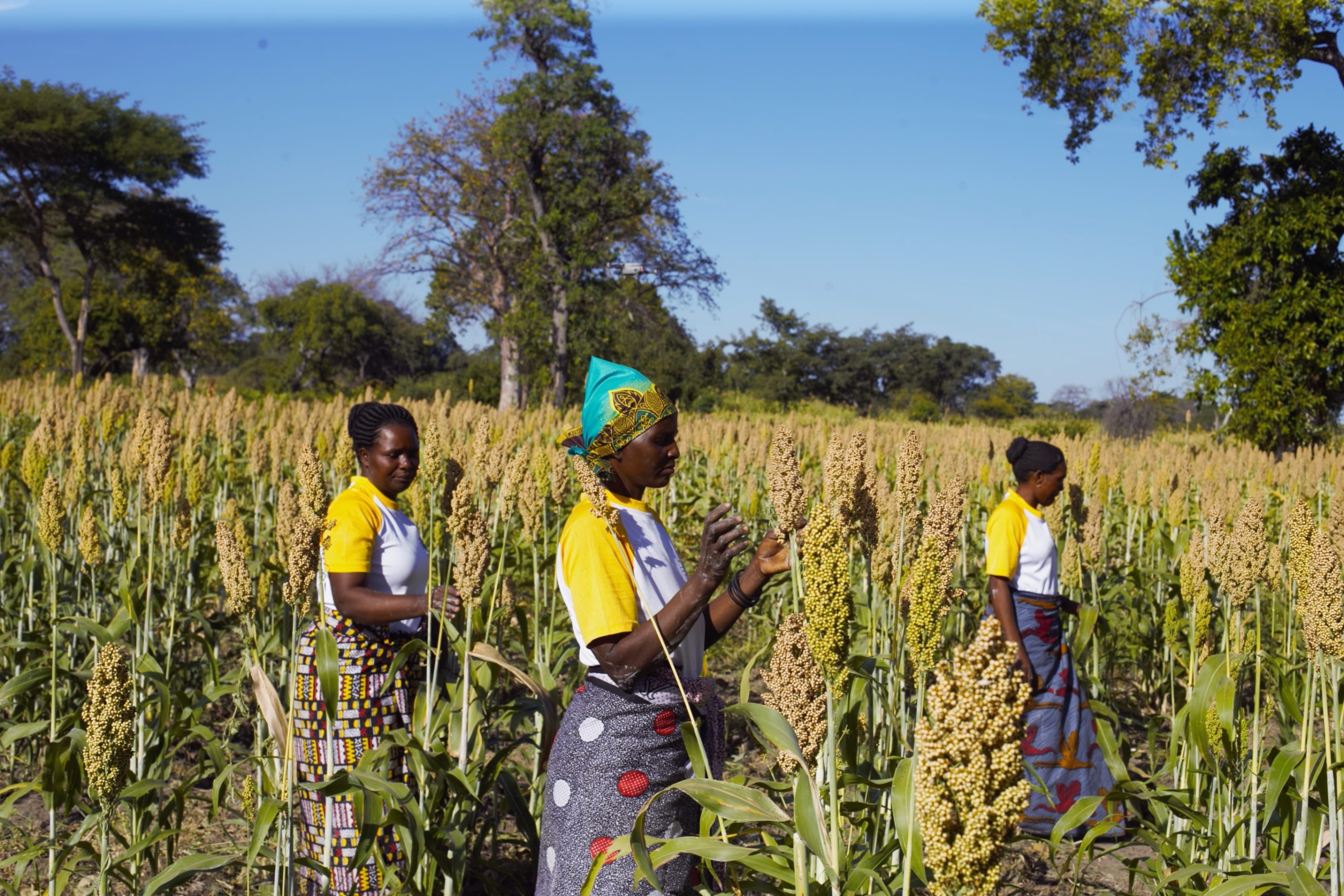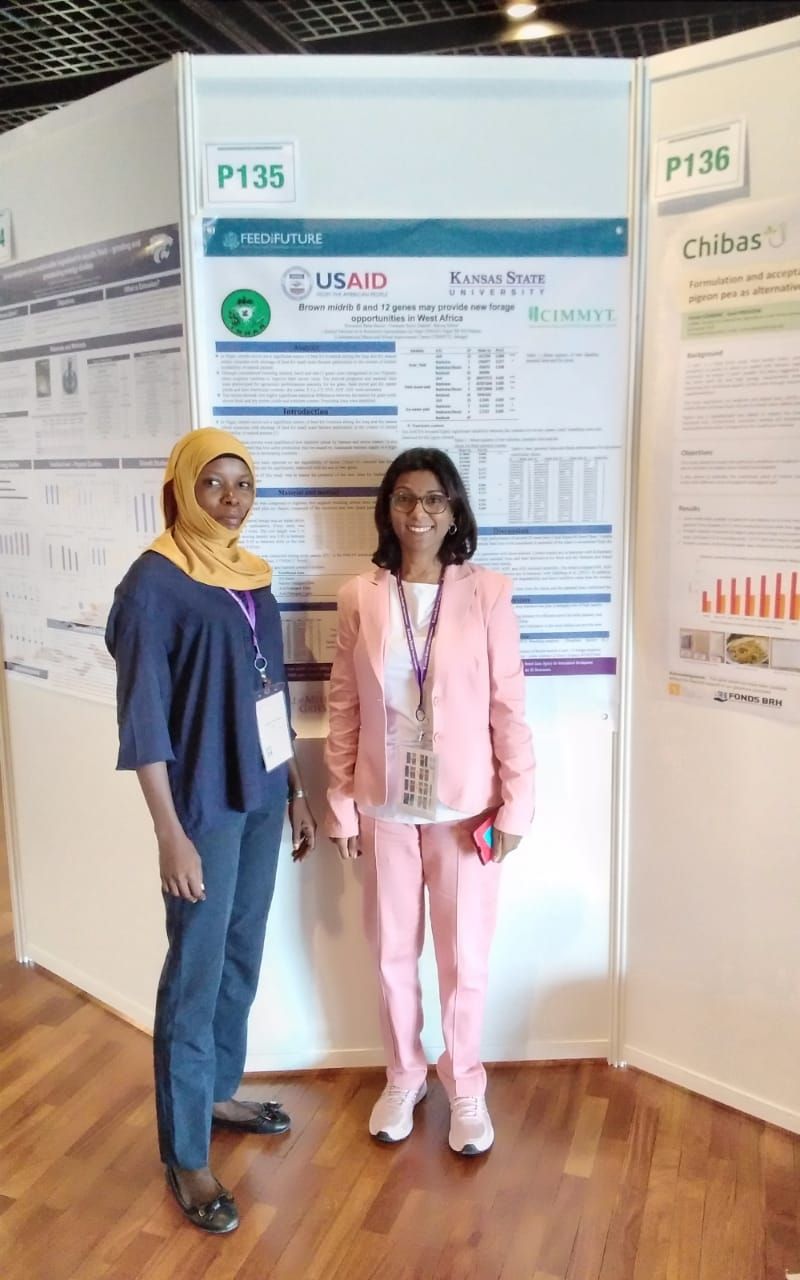sorghum
Driving Varietal Turnover: Insights from Market Intelligence and Seed Systems in Tanzania
 Capacity development
Capacity development
The workshops convened by CIMMYT and partners in Tanzania explored market intelligence and seed system strategies to accelerate varietal adoption and turnover for groundnut, sorghum, and bean stakeholders
Transforming Nigeria’s sorghum seed system with the FCMSS approach
 Climate adaptation and mitigation
Climate adaptation and mitigation
A seed revolution in Nigeria’s drylands is boosting yields and livelihoods through improved sorghum access
How one farmer is learning and leading the way in improved millet and groundnut seed production in Uganda
 Innovations
Innovations
Through access to drought-tolerant and disease-resistant crop varieties, Dennis Obua transformed a handful of seeds into a thriving farm, inspiring an entire community to embrace resilient farming practices
Navigating the seed market and transforming agricultural productivity
 Innovations
Innovations
AgriNet connects farmers with improved seeds, processes grains for diverse markets, and collaborates with CIMMYT and NaSARRI to align research with market needs and boost agricultural productivity
Transforming Farming in Uganda: The journey of four farmers and their demonstration plots
 Dryland Crops
Dryland Crops
Demonstration plots in Uganda showcase improved crops, inspiring farmers to adopt resilient varieties and boost food security
The Sudan Food Security Initiative: Helping Farmers Produce High-Quality Seed Varieties
 Capacity development
Capacity development
CIMMYT’s SASAS program boosts food security in conflict-affected Sudan by introducing high-yielding sorghum varieties through demonstration fields. Part of the Sudan Food Security Initiative (SFSI), it strengthens informal seed systems and helps farmers increase yields.
SASAS and partners use the Mega Demonstration Protocol with mother and baby trials in 10 villages in Kassala State to promote drought-tolerant sorghum adoption.
Transforming agriculture in sub-Saharan Africa: a new dawn for millet production
 Climate adaptation and mitigation
Climate adaptation and mitigation
As climate challenges intensify, a groundbreaking initiative is underway to revolutionize millet production in sub-Saharan Africa, leveraging the crop’s resilience and nutritional benefits to ensure sustainable food systems. A multi-faceted approach to enhancing millet production sets the stage for future initiatives and research aimed at realizing the full potential of millets in Africa.
Stakeholders call for a holistic approach to managing Kenya’s dryland crop seed system
 Climate adaptation and mitigation
Climate adaptation and mitigation
Source: Farmers Trend ()
The February 2024 Kenya Drylands Crop Seed Systems Workshop focused on enhancing seed systems for agricultural productivity in Kenya’s semi-arid regions.
Nevada Researcher Aims to Improve Sorghum Hybrids for Dairy Cattle Feed
 Climate adaptation and mitigation
Climate adaptation and mitigation
Source: Alliance Grain Co. ()
Melinda Yerka’s collaboration with CIMMYT on sorghum breeding marks a strategic move towards sustainable agriculture and climate resilience.
Revolutionizing food security: Africa’s millet renaissance
 Climate adaptation and mitigation
Climate adaptation and mitigation
With the right mix of policy support, technological innovation, and market development, millets have the potential to become the cornerstone of Africa’s resilient and sustainable agricultural future.
Seeds of change: one woman’s mission to transform her community
 Capacity development
Capacity development
In Tanzania, community champions like Venansia Swale play a fundamental role in encouraging the adoption of improved seeds and increasing yields for smallholder farmers.
Strengthening resilience in Mutoko farmers through agroecological research
 Capacity development
Capacity development
A workshop to help tackle climate challenges faced by Mutoko farmers generated significant interest among farmers and stakeholders to work towards sustainable approaches.
Response of African sorghum genotypes for drought tolerance under variable environments
 Capacity development
Capacity development
Scientists revealed a vast diversity in the genetic resources of sorghum and provided a pathway for selecting promising genotypes for regions prone to drought in sub-Saharan Africa.
Sorghum seed sales profit and empower rural women in Tanzania
 Gender equality, youth and social inclusion
Gender equality, youth and social inclusion
In a remote rural area of Tanzania, a group of women farmers has defied the odds and found prosperity through the cultivation of certified sorghum seeds.
